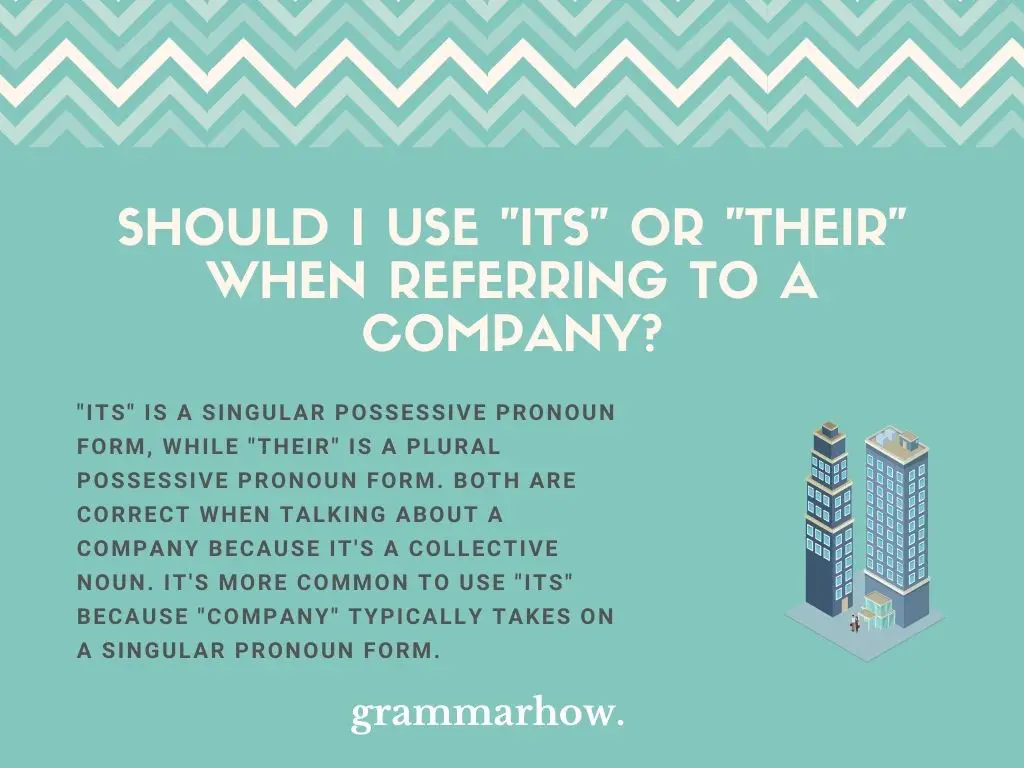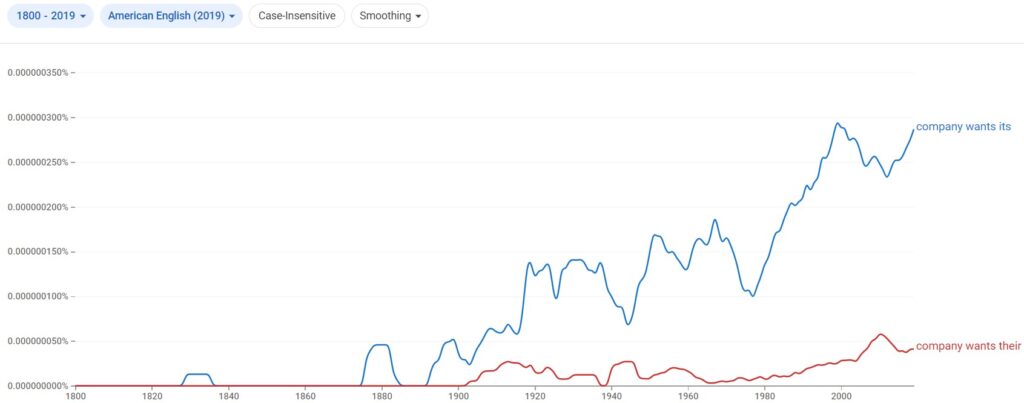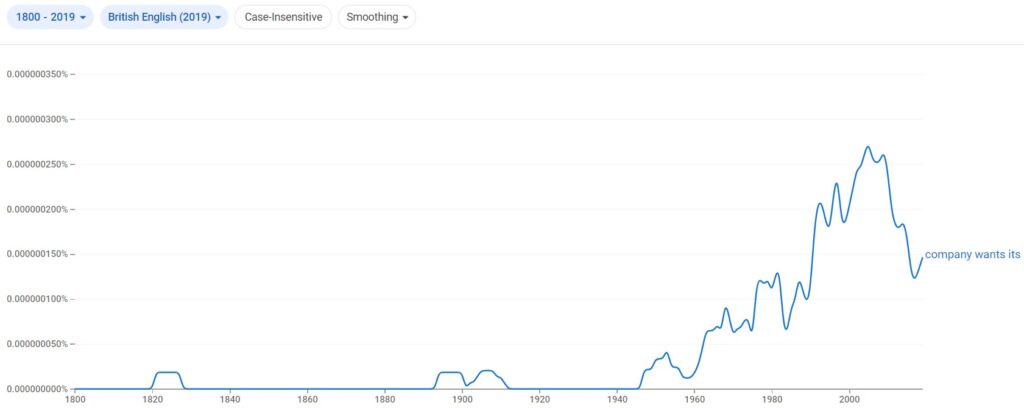A company is both an “it” and a “they.” Therefore, it can be difficult to know whether we use “its” or “their” to write about a company in the possessive form. This article will explain all the rules you need to understand for this.
Should I Use “Its” Or “Their” When Referring To A Company?
“Its” is a singular possessive pronoun form, while “their” is a plural possessive pronoun form. Both are correct when talking about a company because it’s a collective noun. It’s more common to use “its” because “company” typically takes on a singular pronoun form.

With that said, both forms are still correct to use. You can see that with the following:
- The company will give its opinion on these matters in a few weeks.
- The company will issue their address when they feel ready.
Both “its” and “their” are correct because “company” works as a collective noun. We cannot state whether it’s plural or singular, so there’s no reason why both forms are not correct to use.
When Should I Use “Its” To Refer To A Company?
It might help to explore the different pronoun choices more closely. We’ll start with “its” which is the more common choice.
“Its” refers to a company as a singular noun. This is a very common thing to do since “company” is often treated as a singular noun. “Companies” would be the plural form, which would mean that “their” is correct.
However, since “company” is the singular form, it’s appropriate for us to use the plural pronoun whenever we’re writing about it.
Here are some examples to help you with it:
- I don’t think the company needs its employees to discuss these matters any longer.
- The company has its own problems to deal with, which is why they’re not helping you at all.
- This company wanted its people to accept them, but they did too many things wrong.
- I should find the company its next best candidate to make sure I get a reward.
- You’ll need the company and its popularity in the world if you’re going to make it anywhere.
- The company will issue its message later on today, so we’ll find out what they want.
- The company will change its name before the end of the quarter to keep up with common trends.
When Should I Use “Their” To Refer To A Company?
“Their” is a plural pronoun form. We typically do not use it with “company” because “company” is a singular noun. However, it is still acceptable because “company” is a collective noun that refers to multiple people or points of contact.
Though “company” is a singular word, we can still treat it as a plural. It’s made up of multiple entities, which is why we can do this.
Here are some examples to help you out:
- The company will know their place in the world after today.
- This company will want their employees to make the most of the situation.
- The company will have their people look into the issues.
- The company has their own lawyers, which is why you should be careful around them.
- As a company, their morals are a little skewed, so you should be careful around them.
- This company and their ability to save face in media appearances really drive me nuts.
- As a company, their going to have a tough time convincing other people that they’ve changed their ways.
Are “Its” And “Their” Used Differently In The UK And The US When Referring To A Company?
Finally, let’s go over whether there are noticeable differences in the UK and the US.
According to Google Ngram Viewer, “its” is by far the most popular choice when using “company” in American English. This shows that it’s treated as a collective noun that adopts the singular pronoun form.

According to Google Ngram Viewer, “its” is also the most popular choice in British English. However, there is absolutely no mention of “their” as a pronoun choice in British English, which means it’s not correct in this case.

These results might be skewed in favor of American English since there are more data points. Nevertheless, from this graph, we have to take away the fact that “its” is the most common pronoun choice for both American and British English users.

Martin holds a Master’s degree in Finance and International Business. He has six years of experience in professional communication with clients, executives, and colleagues. Furthermore, he has teaching experience from Aarhus University. Martin has been featured as an expert in communication and teaching on Forbes and Shopify. Read more about Martin here.
